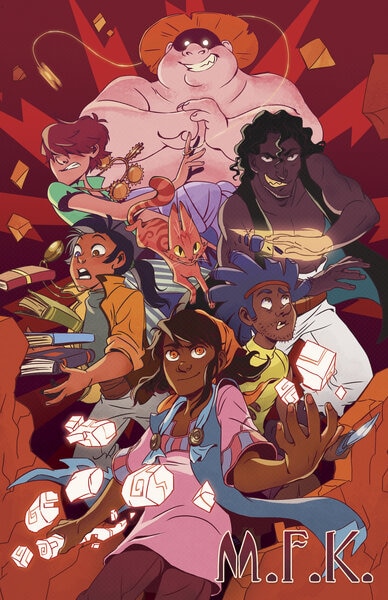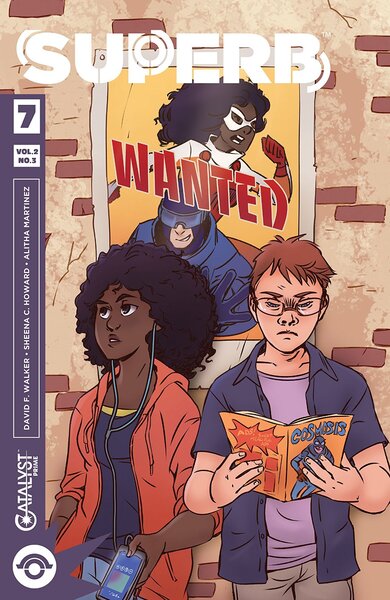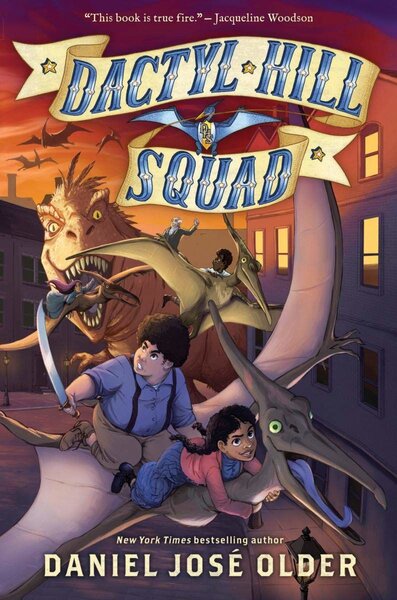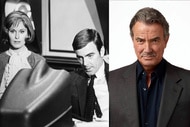Create a free profile to get unlimited access to exclusive videos, sweepstakes, and more!
Indie Comics Spotlight: Nilah Magruder is committed to making beautiful comics for teens and kids
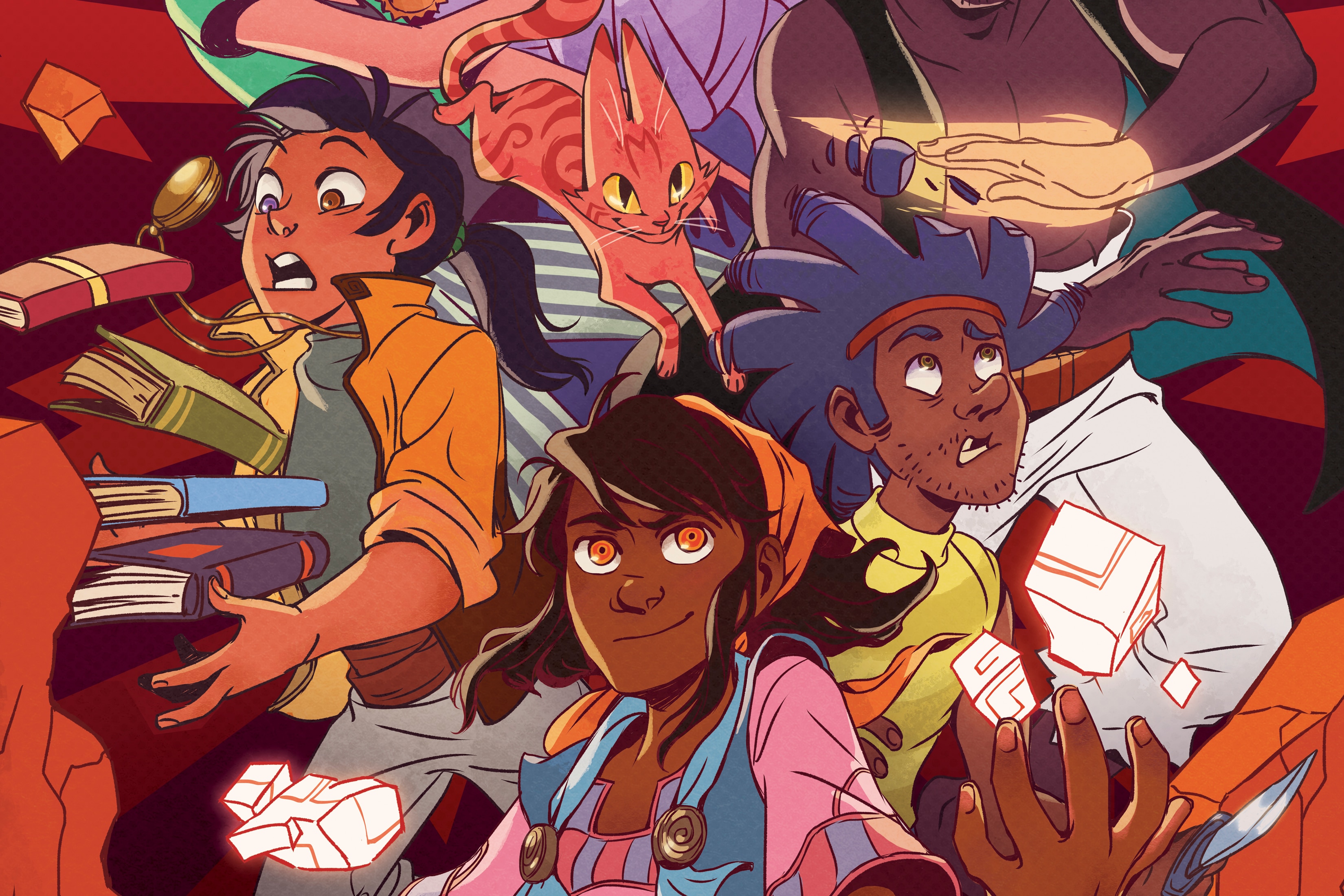
For March, in honor of Women's HIstory Month, Indie Comics Spotlight is dedicated to women creators in indie comics.
Growing up in the Maryland countryside, Nilah Magruder was fascinated with comics and animation at an early age. She'd watch every cartoon on TV and read the Sunday comic strips beginning to end religiously. She even worked on the comics in the school newspaper in high school. By the time she got her hands on anime, her mind was made up: She was going to become an animator when she grew up.
But a funny thing happened on the way to that dream, and she ended up working as a storyboard artist. Seeing the obvious similarity between storyboarding and sequential art, Magruder gave webcomics a try and in 2016 won the first-ever Dwayne McDuffie Award for Diversity in Comics for her YA webcomic M.F.K.
Since then, she's not only become the first Black woman to write for Marvel (in 2016), but she's planted her feet firmly in the YA and children's genres with illustrations for Cash & Carrie (Action Lab), Princeless (Action Lab), Superb (Lion Forge), Dactyl Hill Squad, written by superstar kids author Daniel José Older, and her own book How to Find a Fox (Feiwel & Friends). Magruder took a break from writing the upcoming Marvel Rising (Marvel) and drawing Creaky Acres for writer Calista Brill (Kokila/Penguin) to tell SYFY WIRE how she manages so much multitasking.
What was your favorite anime growing up?
Two that I remember are Unico, the one about the little unicorn, and also this obscure one called Ringing Bell, [which was] originally ... a manga. It was this very niche genre of "shock" children's literature. The story is about this happy little lamb and how happy and peaceful his life is, and then he witnesses his mother get killed by a wolf.
So this lamb is disgusted because its entire flock watched this and no one did anything. So he goes out into the mountains to find the wolf and says to the wolf, "Teach me to be like you so that one day I can be strong and kill you and avenge my mother." So the wolf takes him on as his apprentice and the lamb grows up into a ram and they develop this father-son relationship, even though the sheep's ultimate goal is to kill this wolf. And the way it ends, it's very tragic. Very sad. I was like only 5 then.
That is both fascinating and terrifying.
I was also very into Watership Down. My mom knew I was into animals, but I don't think she ever knew exactly what I was watching.
I really wanted to watch and make movies. When I was a kid I would draw these long stories, these long scenes. I would do a page per panel and I never wrote down the dialogue. I didn't realize that at the time, but I was essentially storyboarding. I don't talk about this very much, but the reason that I got into comics is that I didn't know how to make a movie, but I could draw. And so it became kind of this easier entry point to what I want it to do.
So you've kind of always wanted to be an animator?
Yeah, that's all I wanted to do. I've always wanted to work in animation. I kind of fell into comics because there's a lot of overlap between storyboarding and comic illustration. This was when Sailor Moon and Ronin Warriors were on TV. And even SCI FI Channel had their Saturday Anime block.
I started going to conventions back then, too. This is before Tokyopop, so the only way you could really get your hands on manga was at conventions. So I was following everything I could about manga and anime on the Internet.
I was hooked on it. In fact, I was like 15, 16 when I decided I wanted to do really my first webcomic. This was the mid-'90s, so I'm not even sure the term "webcomic" existed at that point. I think we called it "Online Manga."
That's the point where my comic work took a more serious turn. Because I think I loved the daily [American] strips, but what I really loved about manga and anime [was] they had these more complex stories that were more like the animated movies that I watched as a kid. And that's what I wanted. I wanted a story with weight, and so that's what really got me into drawing comics.
You've worked with Disney, DreamWorks, and even Cannon Busters. Are you still continuing to work in the animation field as a storyboard artist?
Animation is why I moved to L.A. in the first place. I consider myself a part of the industry, but I have not worked in animation for the past year because I've been illustrating books.
When you created M.F.K. years ago, did you know that Abby and her story would resonate as it did?
No. You know, I created Abby at a time when I really didn't see Black women as main characters and superheroes in anything. This was the period of like The Boondocks and Static Shock and Milestone Media. But I didn't really know about Milestone at the time. I was not really into superhero comics. And for me, there were no Black women main characters in webcomics at all.
I knew [what I was creating] was kind of off the beaten path, and I really didn't know what the reception would be. That's kind of why it was so easy to just put it on the back burner, because I felt like I was creating this very niche and self-serving thing and I couldn't be sure of the success of it.
Why did you take such a long break from the webcomic?
Well, I had school and work and everything, and it just took me a really long time to finally commit to it. So when I came back to the webcomics community around 2010, I figured things would be different. [By then] we had things like Avatar: The Last Airbender, and I thought surely there would be more Black women characters in webcomics, but I realized that things still hadn't changed all that much. So I gave it a go.
You have several children and YA books. What draws you to that genre?
As a writer and as a creator, I definitely just don't have a lot of interest in telling adults stories. I kind of wonder if it's because I'm a person who grew up on cartoons and loving children's books. Back then, they were age-appropriate to me, but I guess I just kind of never grew out of that space for some reason.
And I've thought about it a lot. I do see myself very committed to creating for kids, however. I'm fine if adults like what I'm doing, but kids first and foremost are my audience.
What's the creative process like for you?
I very rarely have the experience of sudden [light bulb] idea. So I may come up with an idea, and I may write it down and I may not, but I'll let it percolate and I basically wait to see if it has sticking power. So the stories that I don't let go of after a long period of time are actually the ones that I start developing.
With picture books, you're working with this smaller, very self-contained story. But I'm always juggling multiple projects, so I don't tend to focus on something and just carry it through until it's done. I tend to bounce around. So if I get stuck on one, I'll set it aside and, you know, work on something else and just kind of keep those plates spinning until something gets done. So for me, it's a very long process. I don't like rushing things, because sometimes it takes a while to have that epiphany that really makes a story work.
Looking at all the types of Black female characters that are out now, do you feel we're going in the right direction?
I think it's getting better. Now we have stories like Mildred Louis' Agents of the Realm and Rachel Renee Russell's Dork Diaries ... The landscape is definitely different.
But I still feel like we have a long way to go. Especially in terms of providing access to Black women and Black queer creators. I see a lot of very talented Black women who don't get work in this industry. We're kind of in the thick of it, but things get worse before they get better. And when you're fighting an entire institution for recognition, it's not going to be a clean process. Little by little, we're heading in the right direction. It's just a matter of "Is this just a moment in time or are we going to keep up this momentum?"
